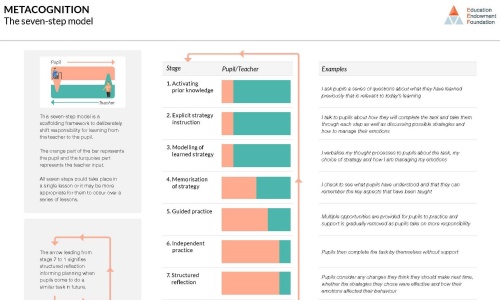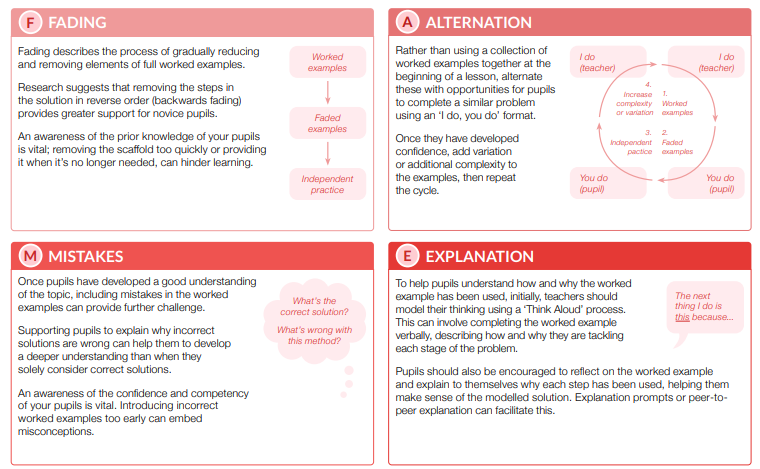The FAME approach and revisiting the Seven-Step Model

Having completed a substantial amount of CPD around metacognition over the last two years, we recently revisited the importance of modelling and shared writing from EYFS to the end of KS2 in our setting. Improving outcomes in writing continues to be a high priority element of our School Development Plan.
I modelled a piece of fiction writing from Year 6 live under the visualiser in the way I would deliver it to my class of Year 5 and 6 pupils. Some of my colleagues from other year groups proceeded to do the same: at times slightly embarrassing as well as entertaining but afterwards, many commented this was the most useful staff training delivered in some time. It was a safe environment in which to explore good practice and compare our methodology and remind ourselves that the features of high-quality writing instruction are universal across the age ranges.
This also allowed me the opportunity to revise and demonstrate practical examples of a concept I have discussed in a previous blog, which is relevant to all age groups and subjects:
The Seven-Step Model - Modelling Independence
Further information and resources can be found here:
We have now started investigating a very recent addition to EEF’s canon of evidence-based resources - The FAME approach: Fading-Alternation-Mistakes-Explanation, which complements the Seven-Step Model very well:

Further information can be found here:
I have found a number of examples of Science and Maths based worked examples linked to this resource (such as via the link above) but it is easy to see how again, this is highly relevant to all subject disciplines and in the case of this particular blog example, writing.
Anyone familiar with Literacy approaches such as Pie Corbett’s Talk for Writing or Jane Considine's The Write Stuff can see the empirical basis for the practical delivery of such methods (e.g. in the imitation-innovation phases of T4W). This reminds teachers of the crucial importance of limiting cognitive load and careful sequential planning in working towards whatever the ultimate goal of that particular unit of work may be.
Written by Vanessa Sullivan, Deputy Headteacher at St Peter’s CE V/C Primary School, Coggeshall
Read our other blog posts here.
